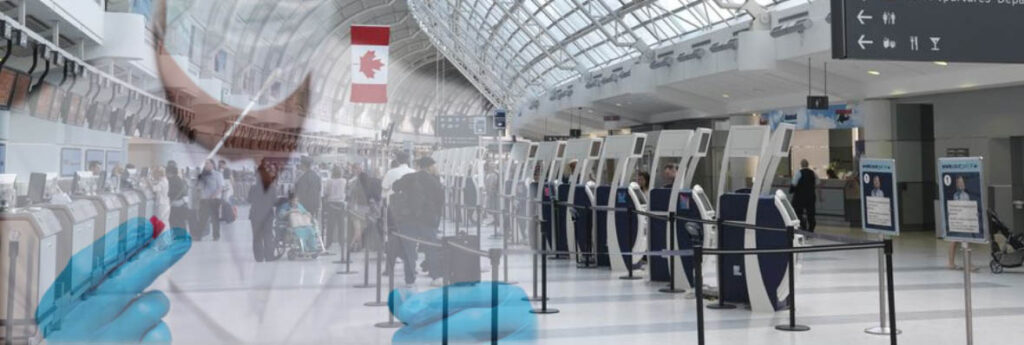A rule requiring international travellers landing at Ontario’s largest airport to take a COVID-19 test came into effect yesterday as the province waits for the just-announced federal testing initiative to come into effect.
The Ontario government implemented the measure at Toronto’s Pearson International Airport as a stopgap amid growing concern over vaccine shortages and the importation of contagious COVID-19 variants into the country.
And is if on cue, Ontario reported its first case of a new COVID-19 variant that emerged in South Africa late last year on Monday, though the province’s chief medical officer Dr. David Williams said the person does not have a known history of travel or any known contact with someone who has travelled.
Public health authorities also confirmed it had recorded 39 total cases of the U.K. variant of COVID-19 as of Monday, including two at Toronto meat processing facility where the individuals similarly showed no indication of having travelled or come into contact with a person who recently had.
Premier Doug Ford has praised the prime minister for announcing a new federal testing plan on Friday but said Ontario will conduct its own traveller testing until Ottawa’s program kicks in.
Canada’s chief public health officer says new COVID-19 cases have been trending downward across the country in recent days but is warning it’s crucial to keep strong measures in place to maintain the tendency.
Quebec reported fewer than 1,000 daily COVID-19 infections on Monday for the first time since early November, while Ontario reported 1,969 cases due to what Health Minister Christine Elliott describes as a data catch-up that includes some previously unreported cases.
But authorities say the reports of a contagious variant spreading in parts of Ontario as well as a slowdown in national vaccine deliveries justify the need for tough new travel restrictions, which will include a requirement that inbound travellers spend the first three days of their quarantine at a supervised hotel and take a COVID-19 test at their own expense.
The rules are causing “anxiety and frustration” for Canadians currently abroad, according to Evan Rachkovsky, a spokesman for the Canadian Snowbird Association.
He said the group is supportive of mandatory COVID-19 testing at points of entry but is opposed to the hotel quarantine measure, which is expected to cost travellers about $2,000 each.
“We believe it’s unreasonable, and we believe that this is going to be a financial hardship for many Canadians that are currently outside of the country,” he said, adding that more than 30,000 of the group’s approximately 110,000 members are currently outside of Canada.
He said there are other unanswered questions, including whether the rules will apply to land crossings and whether travellers’ pets will be accepted at the government-approved hotels.
Prime Minister Justin Trudeau announced last week that Air Canada, WestJet, Sunwing and Air Transat had agreed to suspend service to Mexico and the Caribbean as of Sunday.
The restriction will last until April 30, and Trudeau said the airlines will help arrange the return of customers currently outside the country.
As of this Thursday, all international passenger flights to Canada will have to land at one of four airports – Vancouver, Toronto, Calgary or Montreal.

